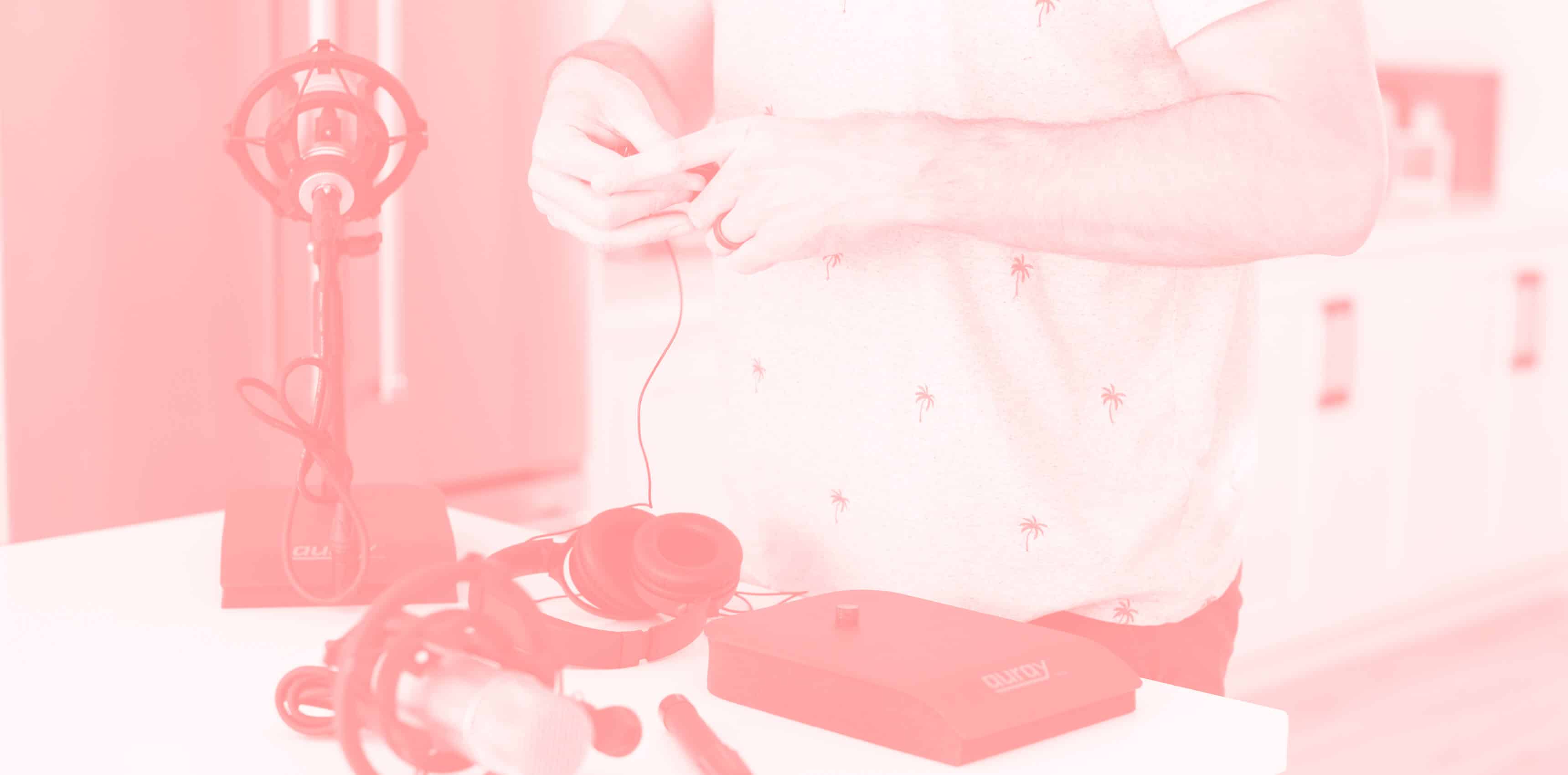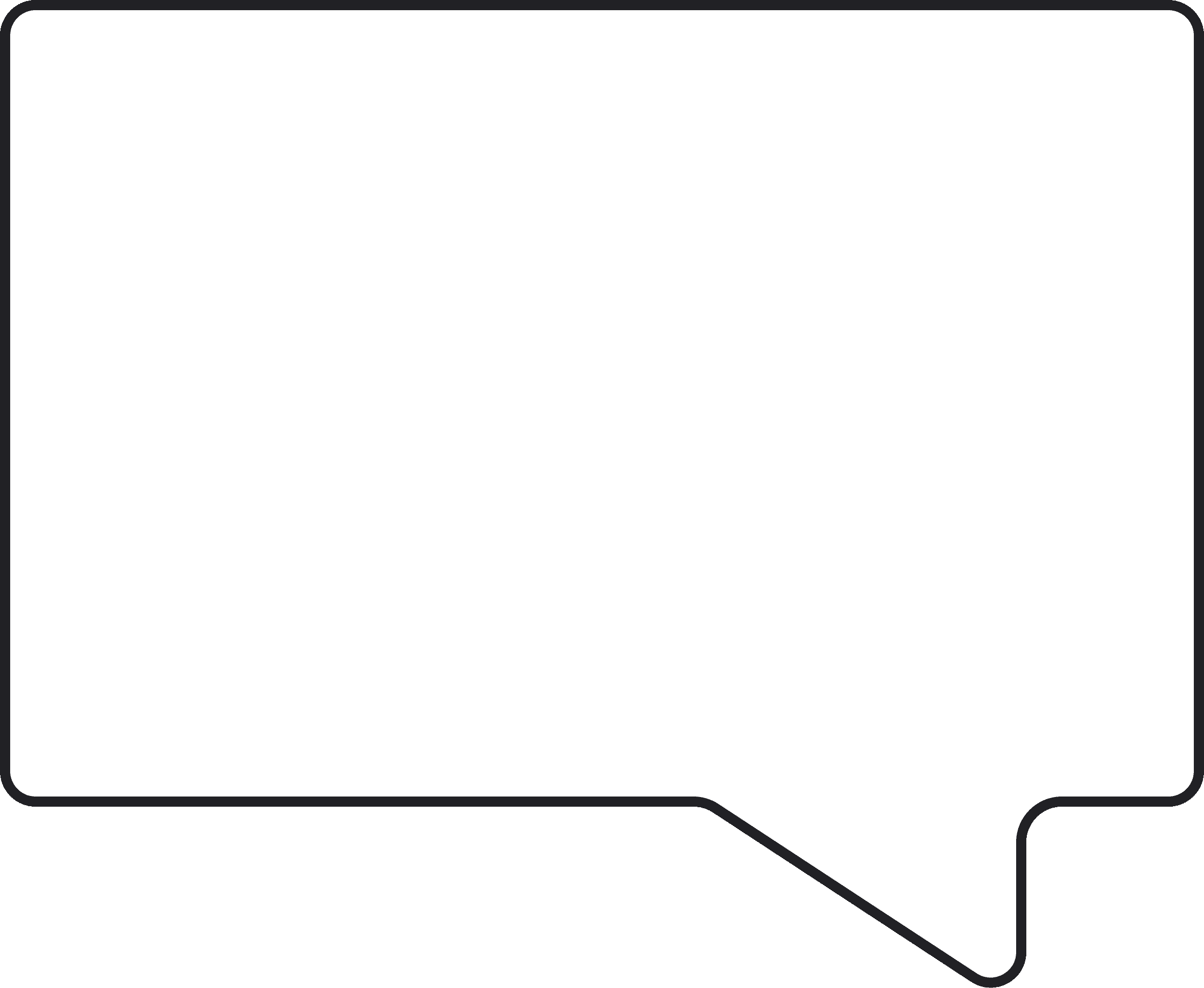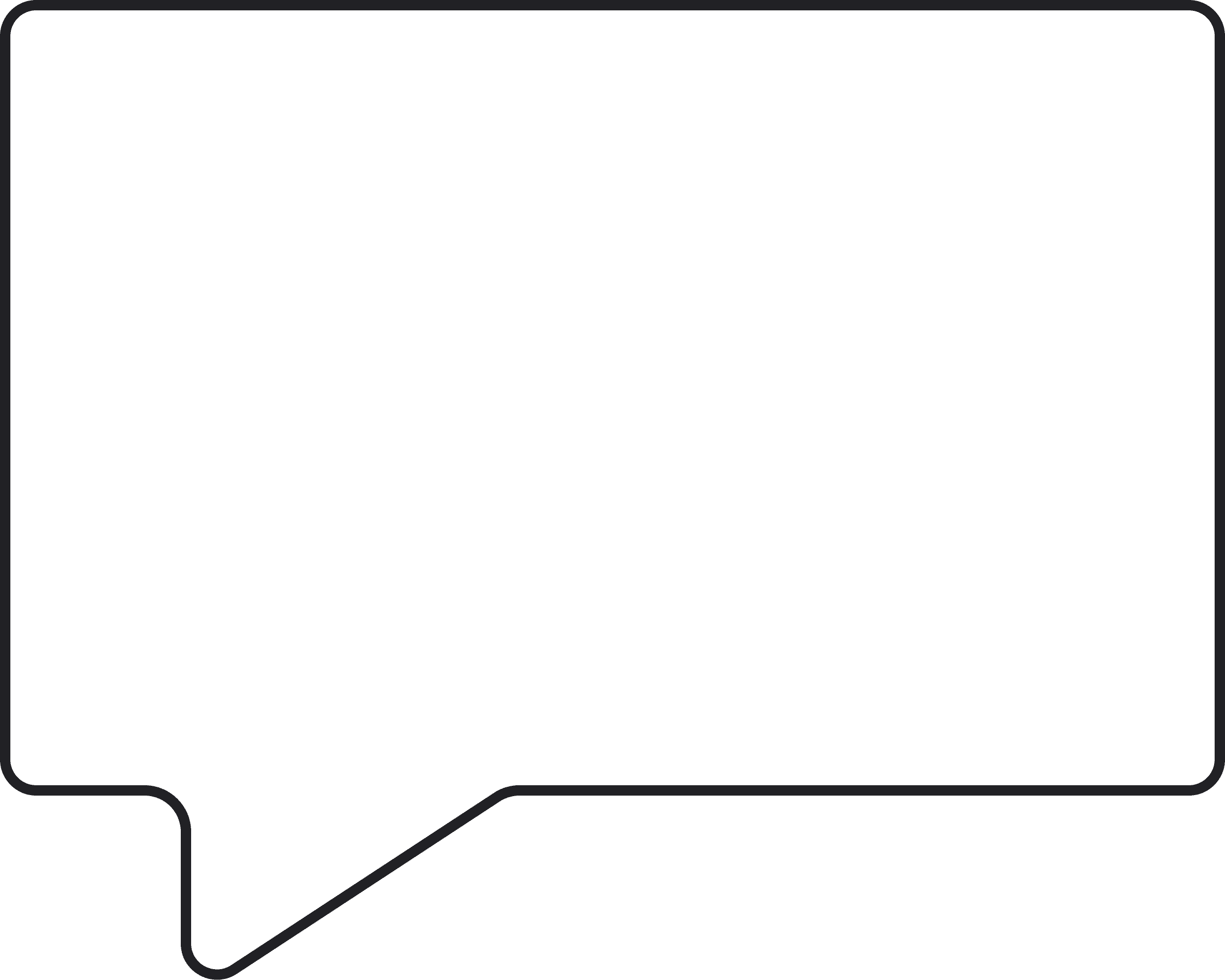by
Caroline Zook
We’ve written this article to walk you through the process of launching a successful podcast.
Whether your main goal for starting a podcast is to generate revenue with your business, have conversations with interesting people, or share your opinions on a given topic, we’ll share proven examples to take your podcast from an idea to something worth listening to.
We’ll also address these common questions:
Is it too late to start a podcast?
Should I get a co-host for my podcast?
How can I make money with a podcast?
What gear do I need to sound professional?
Let’s dive in!
Introduction: Is Podcasting for You?
Is there a topic or opinion you’re dying to share? Have you spent years cultivating a skill and are looking for a place to share everything you’ve learned? Have you built a business or want to build a business and think a podcast could help you on that journey?
Podcasting is a fantastic way to get your unique message out in the world and in front of your target audience. Unlike social media, podcast subscriptions ensure listeners get notifications and downloads specifically about your show, making it a powerful tool to broadcast your message.
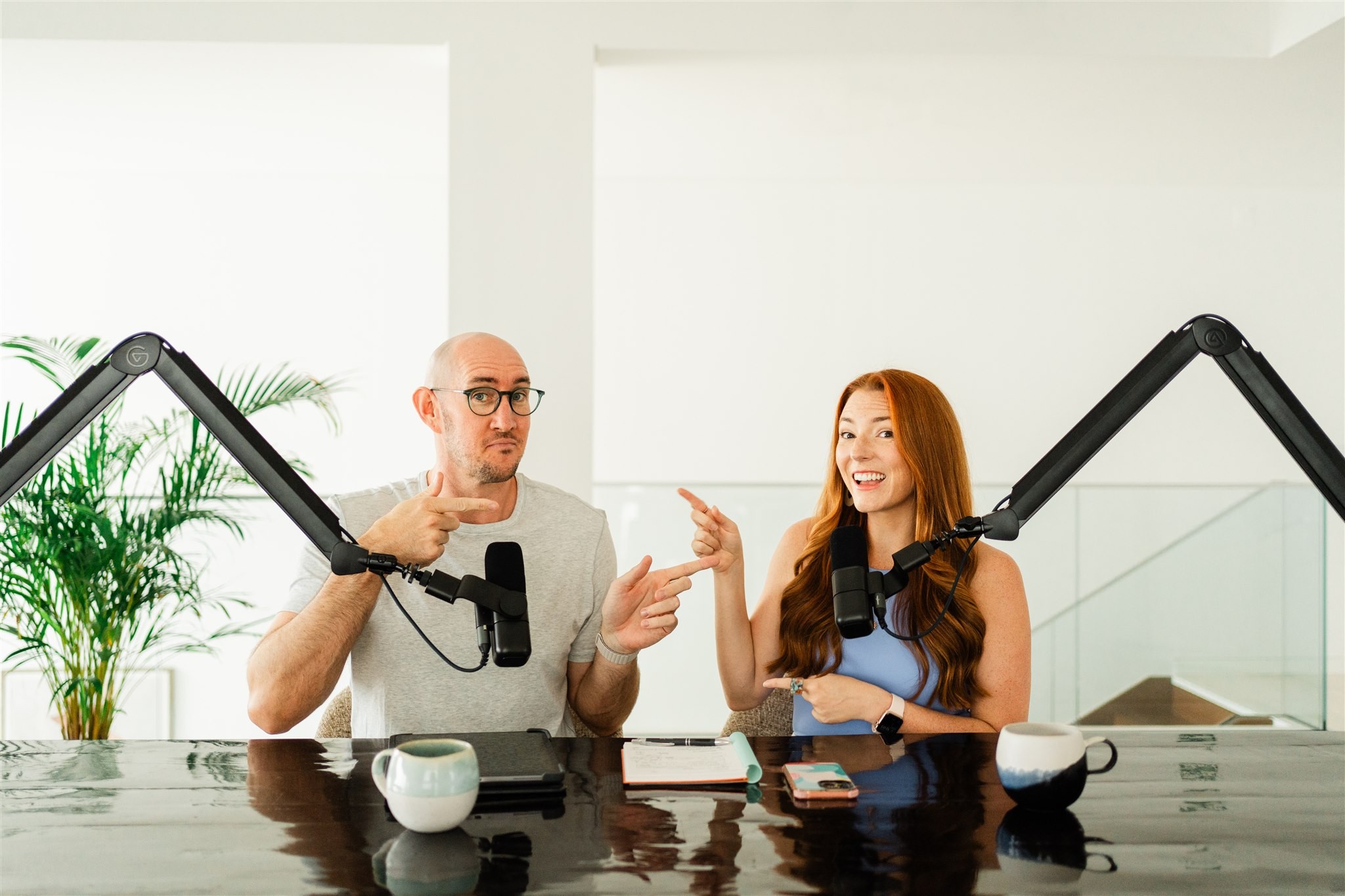
A podcast can deepen relationships with an existing audience.
This is what we have seen the most success with when it comes to creating and running a podcast. Whether your podcast is an extension of an email newsletter (or other type of content), it's a great way to create a para-social relationship with people who already follow/subscribe to you in other places.
A podcast can attract a new audience for you.
One of the first podcasts I created was a co-hosted show with my friend Paul Jarvis called Invisible Office Hours. We started with no audience and grew that podcast to 3,000 downloads per week after two years.
It's not guaranteed that a new podcast will help grow your audience, but if your topic is right and your message is compelling enough, you can see audience growth!
A podcast may only be a creative outlet for you.
Some podcasts may not get a lot of organic listenership and may just be a fun side project. For example, my wife and I ran a podcast called Sleeping With The Boss, which had modest downloads but was never intended to make money. We thoroughly enjoyed recording those episodes and saw it as fun, creative expression.
Whatever your reason for creating a podcast, be honest with yourself about why it exists. You probably aren't going to create the next chart-topping podcast, and that's 100% okay as long as you are clear on YOUR specific goal.
Section 1: Co-Host or Go It Alone?
When starting a podcast, one of the first decisions you need to make is whether to go solo or have a co-host. Both options have their own unique benefits and challenges. In this section, we'll explore the pros and cons of each approach and help you decide which is best for you.
👤 Solo Podcast
Pros: You call all the shots and there’s less tech and editing involved.
Cons: You do all the work, and it can feel a bit lonely.
👥 Co-Hosted Podcast
Pros: Someone to riff off of, generate ideas with, and share the workload.
Cons: Potential for disagreements, harder decision-making, and more complex tech setup.
🕵️ How to Find a Great Podcast Co-Host
Look for someone you effortlessly converse with, shares similar values, and you can spend hours working with. Record and edit a few test episodes to see how the chemistry and division of labor work out. It's great to identify who does what and agree early on how you'll split the workload.
Whether you go it alone or have a co-host, as long as your audience enjoys your show, either option can work.
Section 2: Are Interviews the Only Way?
Many successful podcasts are built around interviews, but that doesn’t mean it’s the only way to run a podcast. In this section, we’ll discuss the different formats you can use, the trials and tribulations of running an interview podcast, and how to conduct interviews that keep your audience engaged.
Do You Have to Have an Interview Podcast to Succeed?
It can seem like the only way to have a successful podcast is to have an interview show, but success depends on your goals.
Selling Products/Services: Use your podcast to deepen relationships with your audience.
Meeting Interesting People: An interview-style podcast can help you connect with fascinating individuals.
Creative Outlet: Measure success by consistent episode production and listener growth.
Challenges of Running an Interview Podcast
One of the biggest headaches when it comes to an interview podcast is scheduling. Once you get that sorted out, the next hurdle is the tech. It can be hard to ensure your interviewee has a good microphone, strong wifi connection, and has experience speaking on a mic.
An interview podcast will definitely increase your workload, but thankfully apps like Riverside.fm or Zencastr make this job just a bit easier.
How to Ensure Your Podcast Interviews Don’t Suck
Preparation: Create a “get ready to be on the podcast” checklist for your guests.
Questions: Send questions ahead of time.
Introduction: Introduce your guest separately from the interview.
Research: Do thorough research on your guest.
Flexibility: Be willing to go off-script during the interview.
How to Get Guests on Your Podcast:
Existing Network: Start with people you know.
Podcast Rounds: Reach out to people currently promoting themselves on other podcasts.
In-Person Events: Attend meetups or conferences.
Cold Emails: Send well-researched, personalized emails to potential guests.
Follow-Ups: Don’t forget to send follow-up emails if you don’t get a response initially.
There's no right or wrong answer to the question, "should you have an interview show?" Only you'll know what feels best and how much extra work you want to do with other people involved.
Section 3: Making Money with Your Podcast
Most likely, you want your podcast to be a revenue generator for your business. For us, we've had a consistently weekly podcast for 6 years that we can tie 10% of our gross revenue to. While 10% of revenue may not be a huge number, our podcast is effortless for us and we enjoy doing it!
Multiple ways to monetize your podcast
Sponsorships
This one is pretty obvious and we'll all listened to podcasts with sponsors/advertisers.
Alignment: Choose sponsors that align with your show’s content.
Rates: Sponsorship rates vary widely. Some charge per thousand downloads (CPM) and more niche podcasts can charge a bit higher rate.
If you go the sponsorship route, just know you'll likely have to do a good amount of cold email outreach to land sponsors early on.
Sell Your Products
Think of your own business as a "sponsor" of your show. You can create pre-roll, post-roll, and mid-roll "ad reads" of your own products.
Our friend Omar Zenhom from $100 MBA used his podcast to grow his software company Webinar Ninja (which later on went on to get purchased with a sizable exit!) Justin Jackson runs the Build Your SaaS podcast which became the main marketing channel to grow their Podcast Hosting service to a multi-million dollar software (we proudly use!).
A podcast can be a great way to sell any digital product and it's even easier when you can flip pre/post-roll ads on and off dynamically with podcast tools like Transistor.fm (aff link).
Land New Clients
Whether you're a coach, public speaker, or a design freelancer, a podcast can be a great way to talk about your industry and position yourself as a thought leader.
Similar to selling products, use the pre and post-roll time of your show to shout out the services you offer and remind people of how you can help them.
No matter how you monetize your podcast, remember that podcasting is a very passive consumption medium. Listeners are almost always doing something else and you should keep your expectations low on purchase conversion rates.
Section 4: Best Podcasting Mic and Hosting
Getting your podcast off the ground requires the right equipment and software. This section will guide you through the essentials, from microphones to recording software, and provide tips on editing and hosting your podcast.
🎤 Microphones
There are hundreds of podcasting microphones these days. Here are options at different price points (you can always upgrade later!):
No Budget: Use Apple Earbuds or similar
Under $100: RODE SmartLav+
Under $300: RODE NT-USB
Our Preferred Setup ($500+): Logitech Sona with a Vocaster Two Interface
For the $300 and $500+ option, you'll likely want to also purchase a boom arm. We love this Elgato Wave one. You can see the boom arms and Sona mics in action here:

⏺️ Recording Tech
Solo Podcast (free): Use Quicktime, GarageBand, or Audacity (free!)
Co-Hosted or Interview Podcast (free): Use Zoom for video and Quicktime for local audio recording.
Co-Hosted or Interview Podcast (paid): Riverside.fm starts at $19/month
✂️ Editing Your Podcast
DIY: Use GarageBand (Mac) or Audacity (Windows)
Paid Service: Use Castos Podcast Editing ($19/mo) or find a freelancer on UpWork or Fiverr.
💻 Podcast Hosting and Publishing
Our podcast host we love: Transistor.fm (starts at $19/month).
Easy setup, beautiful embeddable player, small private podcast hosting, and great customer support. If you want dynamic ads, which is an amazing feature, you'll need to use the $49/month plan.
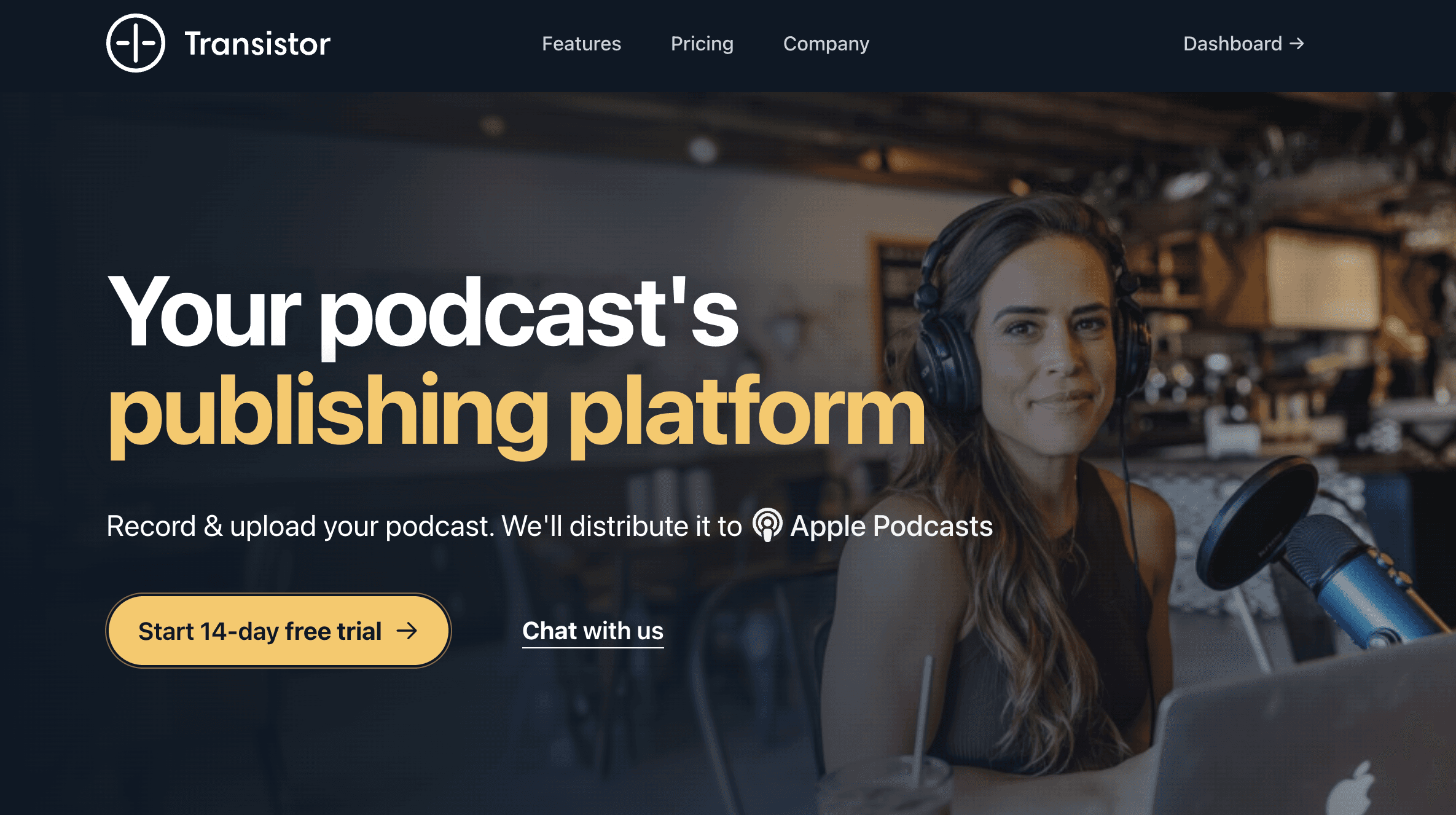
Conclusion: Some Final Thoughts About Podcasting
If you walk away from this podcasting article with nothing else at all, walk away with this: Create something worth listening to. Do research into your topic, understand your unique angle, and invest in quality equipment.
Your podcast should be a conduit to something else—whether that’s an email list, your website, or your business. Good podcasts don’t just push audio content out into the world; they build a loyal base of fans, friends, and followers. Invest in your show, and it will pay dividends.
Join 12,000+ intentional business owners and get our Growing Steady newsletter every Monday where we share transparently about the latest projects we’re working on. You'll also get our Calm Creator Canva Whiteboard as a free download!

